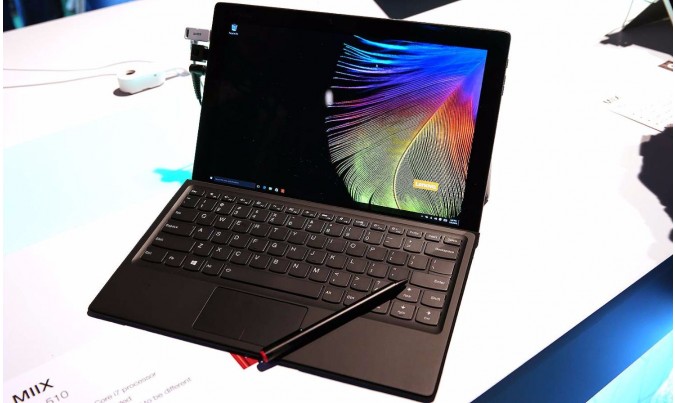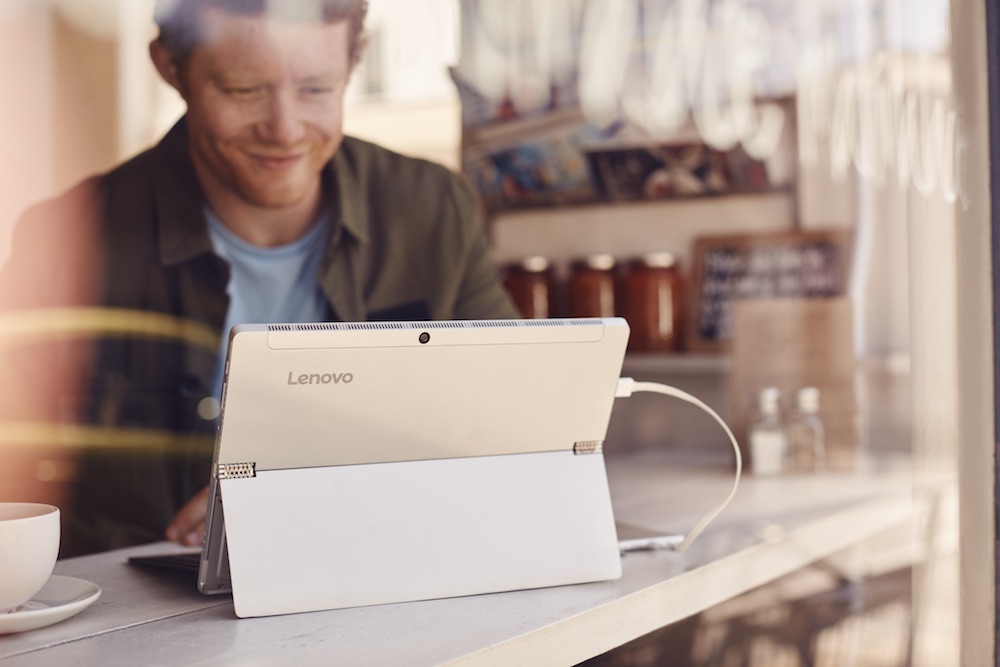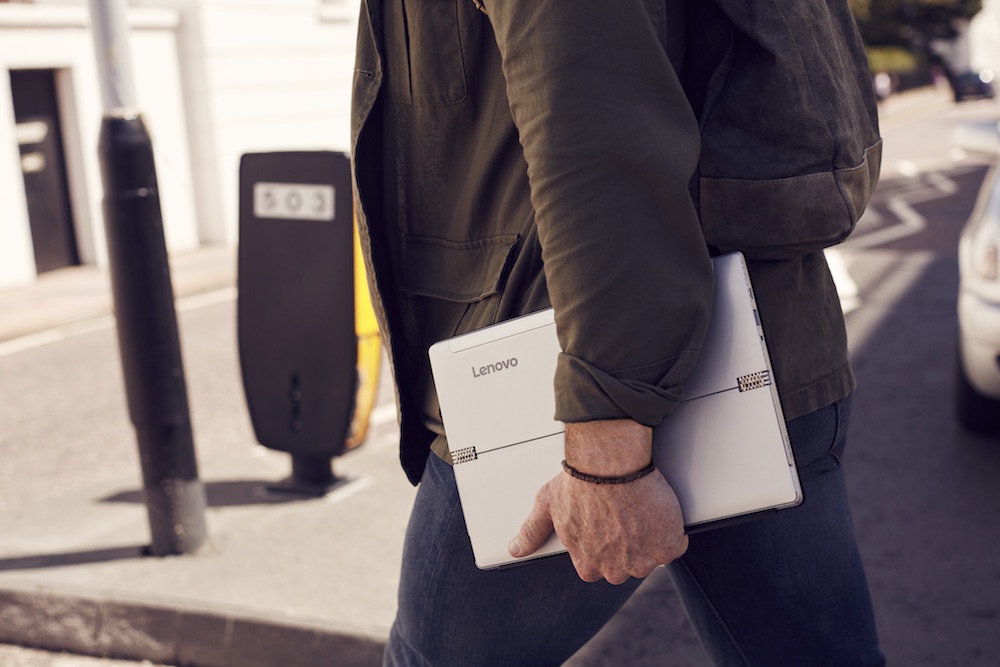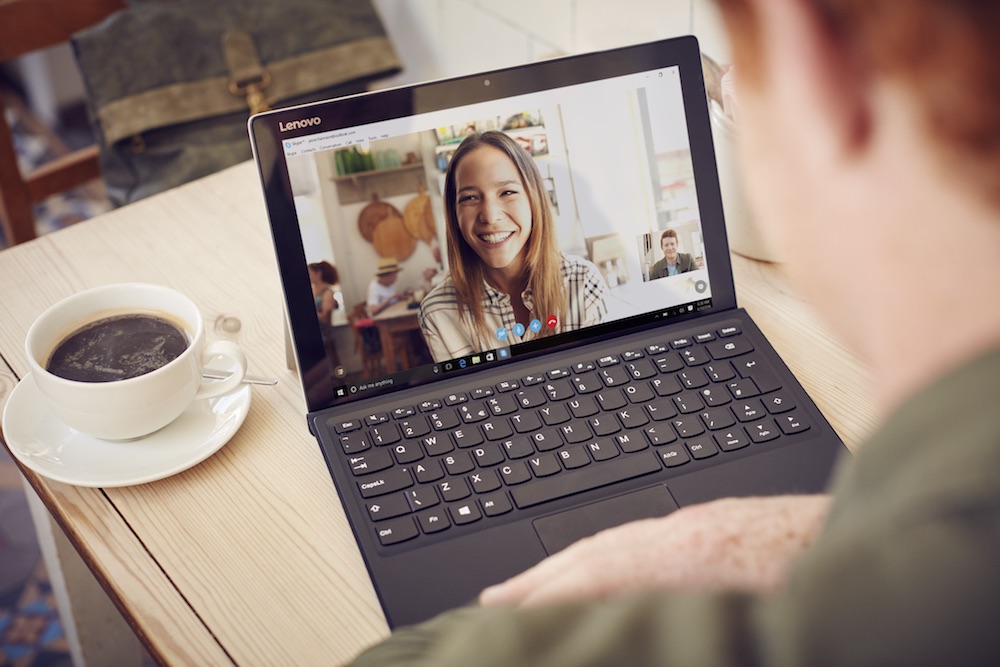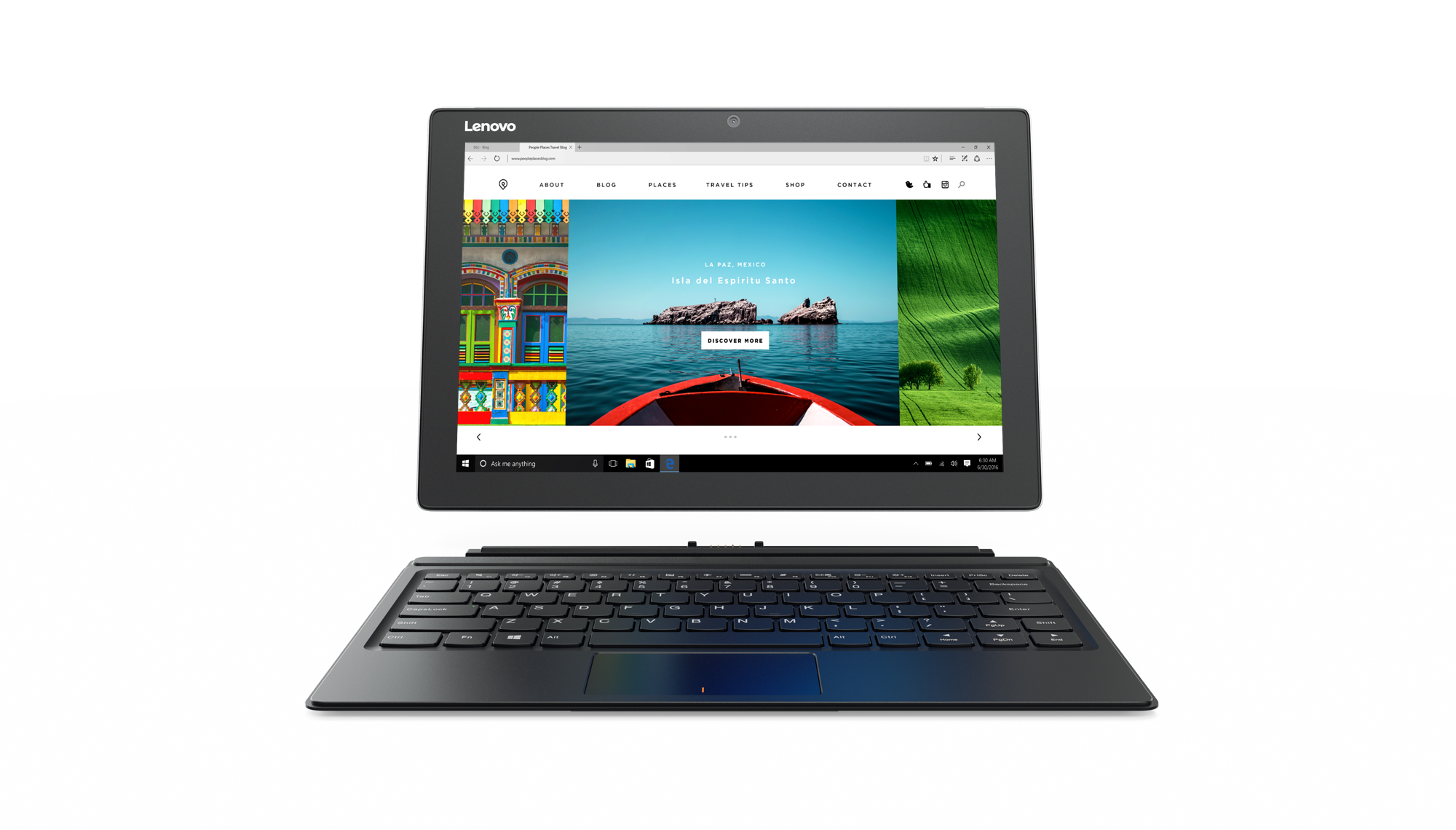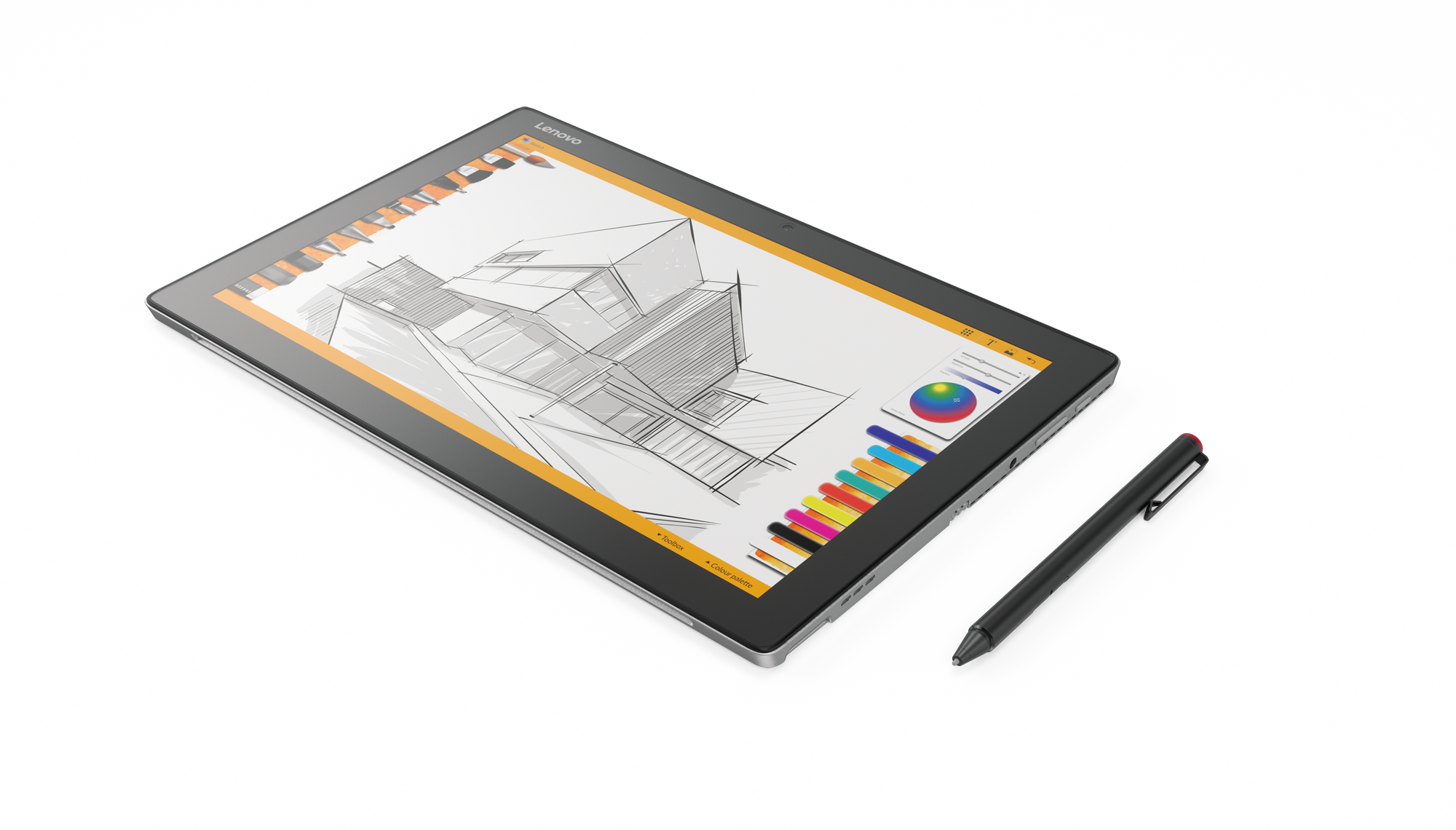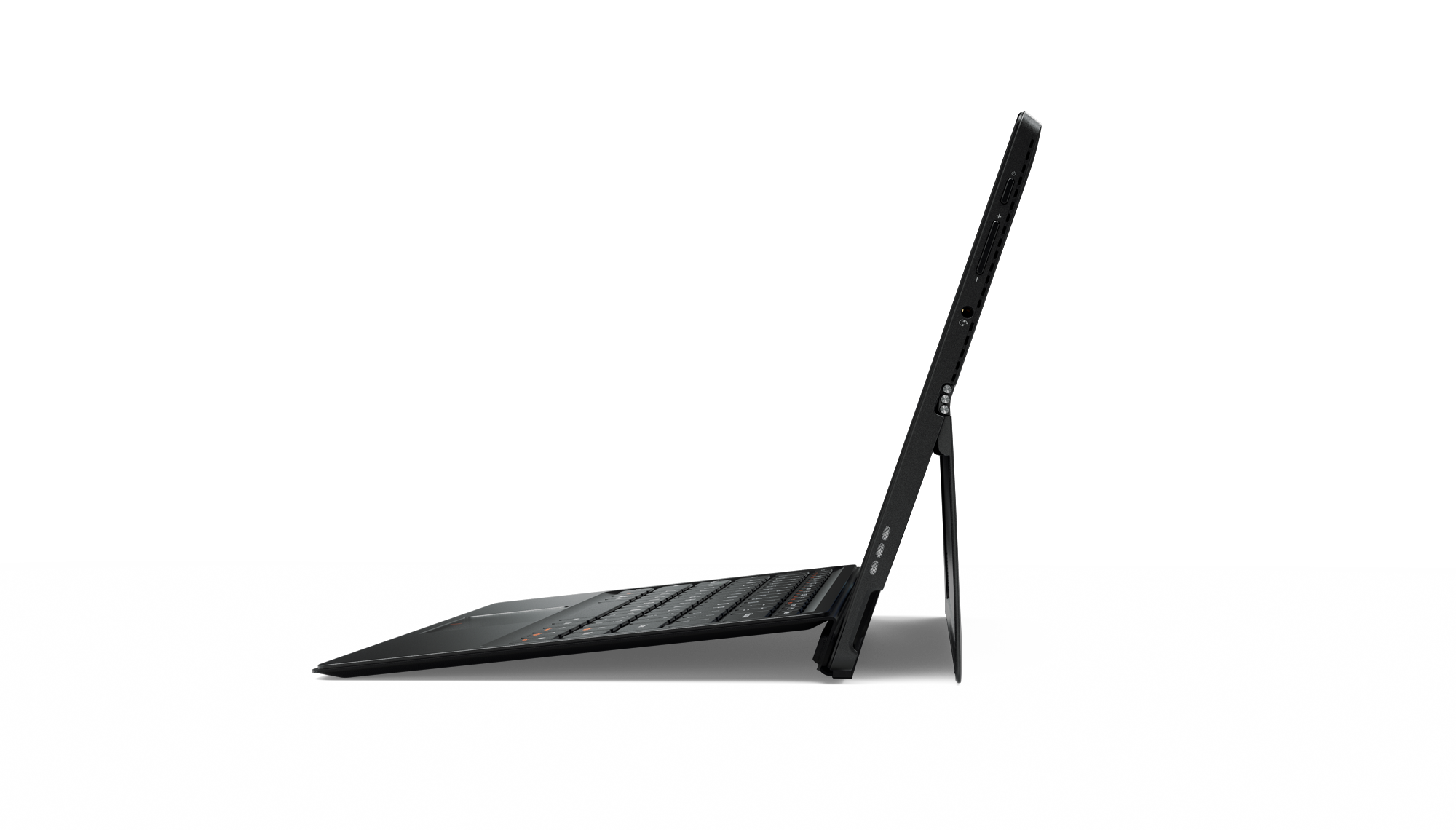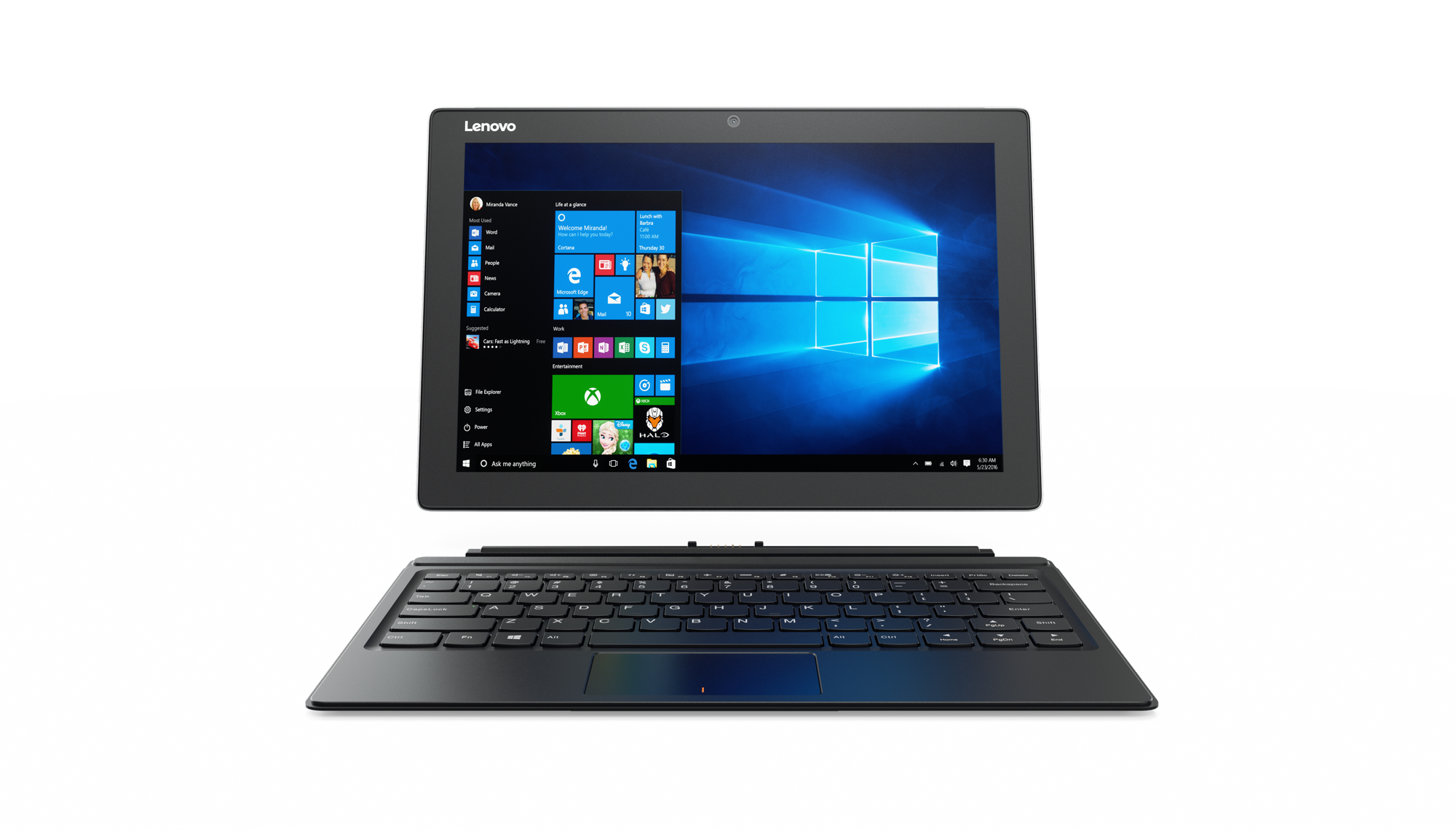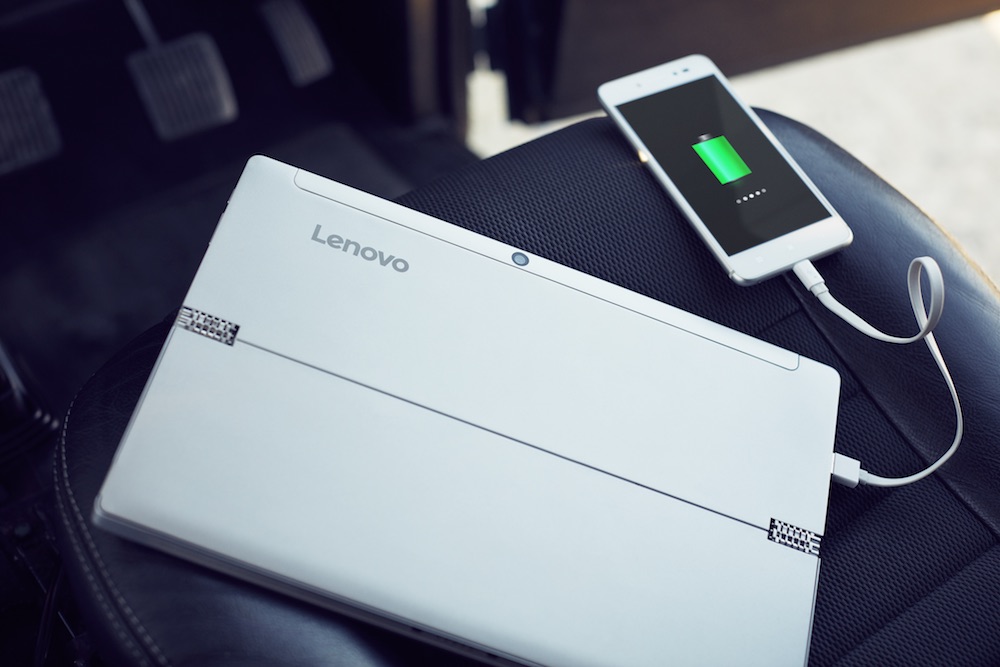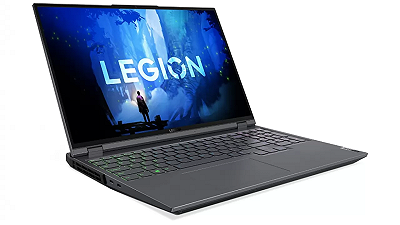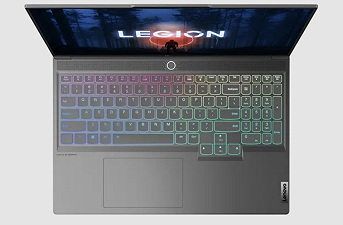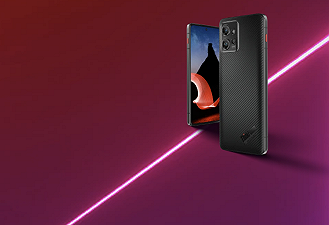Tra i numerosi dispositivi che Lenovo ha presentato a IFA 2016 vi è un nuovo tablet ibrido 2 in 1. Chiamato Lenovo Miix 510, si configura come il successore di Lenovo Miix 310.
https://www.youtube.com/watch?v=SosZmxw8JJY
Specifiche tecniche:
- Display: 12,2″ full HD+ (1920 x 1200 pixel), 320 nits con Gorilla Glass
- Processore: fino ad Intel Core i7 (Skylake)
- RAM: fino ad 8 GB LPDDR4
- Archiviazione: SSD fino ad 1 TB
- Connettività: WiFi 802.11ac, Bluetooth® 4.0, LTE Cat4
- Porte: 1 x USB-C 3.0, 1 x USB 3.0, slot microSD, jack audio combo
- Fotocamere: frontale 2 megapixel (fuoco fisso), posteriore 5 megapixel (autofocus)
- Batteria: 39 Wh, fino a 7,5 ore utilizzabile anche come power bank
- Dimensioni: 300 x 205 x 9.9 mm, 300 x 205 x 15.9 mm con dock tastiera
- Peso: 880 grammi, 1,25 kg con dock tastiera
- Altro: audio stereo con Dolby, tastiera retroilluminata, Lenovo Active Pen (compatibile con Windows Ink)
- Colori: Platinum Silver (metallo chiaro), Ebony Black (nero)
- Sistema operativo: Windows 10
Disponibilità a partire da ottobre 2016. Prezzo a partire da 699€






